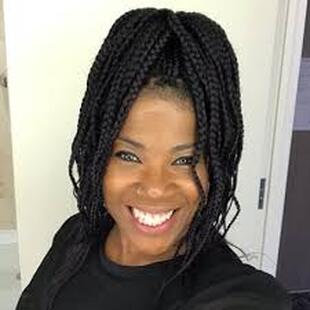Lee-Ann Stephens, Ed.D. @MNTOY2006
Minnesota Teacher of the Year 2006
Parenting and School Behavior
 @MNTOY2006
@MNTOY2006
Dr. Michael Robinson: In what ways is it possible for “good” parents with “excellent” parenting skills to have children who exhibit bad behavior in school?
Dr. Lee-Ann Stephens: We need to get away from the good/bad binary. I struggle with how that binary pigeonholes. I would ask, “What constitutes a “good” parent? As a parent and an educator, there are times when I am spot on and there are times when I mess up. What label would I have? I believe that most parents are doing what they feel is best for their children. Those who fall short of whatever standard of measurement we have, probably need help with certain skills. Even parents, we label as “good” have moments of frustration that impact how their children show up in school.
Dr. Michael Robinson: Should “good” parents/parenting be held responsible for the bad behavior of their children in school?
Dr. Lee-Ann Stephens: What does “bad” behavior mean? Who determines “bad” behavior? Or are there student behaviors that will exclude them from being seen in their full humanity? Are there behaviors that are labeled bad now, but will serve them well as an adult? Are we putting parents and students in a binary box? I believe that parenting doesn’t stop when children are dropped off at school, so there needs to be accountability for behaviors that benefit the community and those that harm the community. As an educator, the first time I connect with parents shouldn’t be when something harmful has occurred. Parents need to hear affirmations from me about their child and then, they are more readily willing to own all behaviors.
Dr. Michael Robinson: How can or should educators assist parents who are struggling with the behaviors of their children?
Dr. Lee-Ann Stephens: As a teacher, I do feel that it is my responsibility to assist parents whose children are struggling with behaviors that prevent them from being a part of a community of learners. My approach isn’t from a field of judgment, but one of compassion and love. I want parents to know that I am partnering with them, even in my imperfection, to give their child the best educational experience possible. That experience comes with expectations of how they will conduct themselves so that everyone feels safe and secure in the community of learners.
Educators need to provide resources, if needed, and not make assumptions. My questions would be, “How can I help your child be his/her/their best self?” “What do you need from me?” “What does your child need from me?”
One of the most enlightening books that align with this topic is Troublemakers by Carla Shalaby. The following is a quote from the book: “Time and again, we make seemingly endless efforts to moderate, punish, and even medicate our children, when we should instead be concerned with transforming the very nature of our institutions, systems, and structures, large and small.”
If we label children “good” and/or “bad,” what happens when the good children exhibit “bad” behaviors and the “bad” children exhibit “good” behaviors? Now, that’s something to ponder.
Here's an article I wrote for Education Post a few years ago. It is still relevant.
https://educationpost.org/are-we-too-focused-on-how-black-boys-act-to-know-who-they-really-are/
Bio
Dr. Lee-Ann Stephens, Minnesota Teacher of the Year 2006, has been an educator for 29 years with K-12 teaching and leadership experience. She currently serves as a teacher on special assignment with the St. Louis Park Schools in St. Louis Park, Minnesota, as a Racial Equity and Instructional Coach. She is an affiliate with Pacific Educational Group: Courageous Conversations about Race. She serves as an Advisor for Integrated Schools. She holds a B.A. in International Studies, B.S. in Elementary Education, M.Ed. in Curriculum and Instruction and a Doctor of Education in Educational Leadership. Her scholarship focuses on the needs of Black and Brown students in Advanced classes.
Lee-Ann Stephens, Ed.D.
Racial Equity Coach
St. Louis Park Schools
"Power concedes nothing without a demand. It never did and it never will." Frederick Douglass